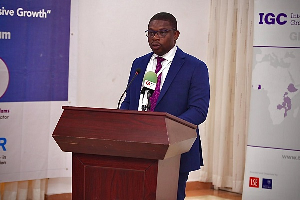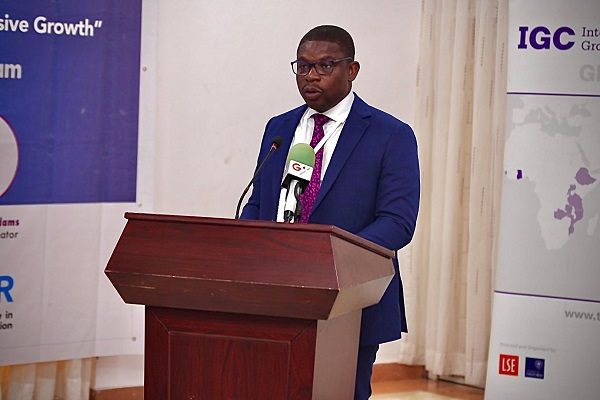 Richard Gyan-Mensah, Deputy Minister of Energy and Green Transition
Richard Gyan-Mensah, Deputy Minister of Energy and Green Transition
Deputy Minister for Energy and Green Transition, Richard Gyan-Mensah, has assured the public of the government’s commitment to transforming the energy sector through bold policy reforms aimed at accelerating access to affordable electricity.
Speaking on behalf of the Minister for Energy and Green Transition, Deputy Minister Richard Gyan-Mensah outlined the government’s vision to provide electricity that is not only widely accessible but also affordable and environmentally sustainable.
Addressing a high-level seminar jointly organised by the International Growth Centre (IGC) and the Centre of Excellence for Public Utilities Regulation (CEPUR), the Deputy Minister noted that Ghana has made significant progress in its national electrification agenda, particularly in expanding access to underserved areas.
“Electricity is the fulcrum around which industrial transformation and daily life revolve. Ghana has made significant progress in this space, boasting a national electrification rate of 89.03%. Urban areas enjoy a 91% connection rate, but rural access still lags at 50%, underscoring the need for targeted and inclusive energy policies,” he said.
Held under the theme “Towards an Affordable and Sustainable Electricity Sector for Inclusive Growth,” the seminar brought together policymakers, regulators, private sector actors, and energy experts to tackle one of Ghana’s most urgent development priorities.
Gyan-Mensah also emphasized that enhancing the affordability of electricity remains a key priority for the government.
He explained that the government, in collaboration with the Public Utilities Regulatory Commission (PURC), is working to implement a balanced tariff system that allows utilities to recover operational costs while protecting vulnerable consumers.
He further disclosed that the Ministry had reviewed the previous administration’s implementation of the Cash Waterfall Mechanism, a move he said has “significantly improved transparency in revenue collection and allocation.”
On universal access, the Deputy Minister acknowledged the challenges of reaching hard-to-access communities.
He revealed that over 200 islands and more than 2,000 communities along the Volta Lake remain disconnected from the national grid.
He added that the government is designing a targeted electrification program to address these gaps.
Gyan-Mensah also highlighted the government’s Green Transition policy, which aims to increase renewable energy penetration to 10% by 2030.
“The Ministry of Energy and Green Transition’s policy places emphasis on renewables and alternative energy as sources of power to complement conventional power. It is the government’s policy to scale up renewable energy penetration by 10% by 2030. We are encouraging increased private sector investment in utility, scale solar and wind energy projects,” he stated.
He concluded by calling on all stakeholders, including government, regulators, the private sector, and civil society, to work together to “keep the lights on and power our industries.”
MA
